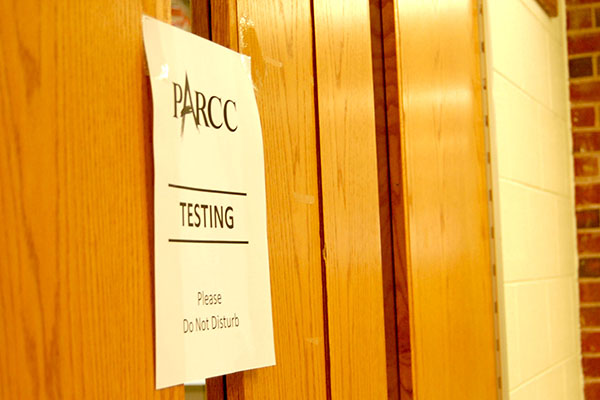The months of April and May, for many sophomores, juniors, and seniors, are major crunch months for AP classes. This generally means that those AP students looking to do well on their exams and forgo most of their social life, especially during the weekends, as the tests approach.
However, there are other sectors of students who see AP classes in a different light. They join AP classes for one reason: the tasty, juicy, ever-so-appealing GPA boost. These students live by the basic policy of, “Who would want to take a class on a 4.0 scale when you could take one on a 5.5 scale?” Typically, many of these students could care less about one of the main goals behind the AP classes, the test, as long as their GPA stays above a 4.0.
There are a couple of fundamental problems with this mindset, one being that RB’s weighted GPA is incredibly deceiving. A straight C student in AP classes would have a GPA of 3.5. Looks good right? Well, therein lies the problem. Take the grade boost out of the equation and we have a student with a, not-so-desirable, 2.0 GPA.
As a result, many colleges will ask for an unweighted GPA because the grade boost given by AP classes is becoming ridiculous. In my recent college visits and personal visits with admission representatives, all of them stressed one idea: that you not only need to be taking hard classes, but also be doing well in those hard classes. While the boosted GPA looks good, it can potentially give a false representation of achievement in AP classes.
The other significant problem associated with this mindset is that too many students who frankly shouldn’t be in AP classes join them to get the grade boost. AP classes were intended to be college level classes, and many high school students are not ready for that type of rigor.
While most students could probably handle the level of curriculum, they may not be willing to put in the effort that should be required of these classes. As a result, some AP classes are filled with students who aren’t up to the challenge. This lowers the level of discussion and interaction in the classroom and makes the classes easier than they were intended to be.
I’m not trying to advocate that students don’t take AP classes because I think they can be a positive part of a challenging and mentally stimulating high school career. However, I think that the GPA boost should be reevaluated.
Students should have to score a three or better on the AP exam in order to receive the weighted GPA.
Yes, this would reduce the number of students in AP classes most likely, because students who don’t care about their scores would not receive the boosted GPA, and I’d suspect that kids wouldn’t take the class if they had to try considerably harder only to receive the same GPA. This change would take a step in the right direction towards keeping AP classes up to the high standard for which they were designed.
The AP tests are hard tests, and in many cases, tough to pass. But for the most part, the kids that put the effort into the class pass the tests. Scores of four and especially five may require some innate ability, or an incredible amount of work for some students, but a three should be an achievable goal for, all motivated students in the class.
If a student can’t score a three or better, and is trying their hardest, it is probably an indicator that they would be better served in regular classes. While it sounds harsh, not everyone should be in AP classes. They weren’t created for everyone and there is a distinct reason they are named Advanced Placement.
There are obviously a lot of loopholes and logistics that would have to be worked out with a system like this, seeing as the tests do cost money and some schools don’t take any AP credit, so it’s basically worthless to take the tests for some students. But the basic idea of requiring some level of achievement in the class order to receive the significant boost in GPA is a better system and more accurately reflects the philosophy behind the AP program than our current system. Not only would it help to keep the effort level up in AP classes, but it could potentially help to raise the effort level in regular classes as well by integrating students into appropriate class levels.
While it is by no means a fully conceived out or planned system, the idea behind requiring a three or better on AP tests in order to receive the generous GPA boost is something to be considered. It would redistribute students into more appropriate classes, help to increase effort expectations, and strive to keep AP truly representative of “Advanced Placement”













Jessica Huebner • May 10, 2010 at 1:07 pm
I agree – the GPA boost can be deceiving and should be reevaluated.
I’m in AP Micro/Macroeconomics, and I know that there are a lot of students who are in it only because it increases their GPA. With the AP exams in full swing this week, those students are probably experiencing the consequences of their lack of dedication to the class.
AP classes are made to challenge students that are most likely already very intelligent. If someone joins an AP class without being adequately prepared for the workload, they more often than not fall behind. Since it’s an AP class, though, they end up getting a deceiving GPA. Plus (as was mentioned in the article), colleges can ask for unweighted GPAs, which show a student’s true grade point average.
I also agree with your solution; it would really be more beneficial to everyone if students only receive the weighted GPA if they score a three or higher on the AP exam.
Evan • Apr 26, 2010 at 4:00 pm
AP classes have been, and will continue to be the symbol of RB’s identity crisis.
This proposal, however, further complicates the issue and makes the entire AP situation more biased and less egalitarian. Offering weighted GPAs to students who pass the tests jeopardizes a bevy of students. For example, two students with two different teachers are very likely to have a different level of preparedness for the exam–thus, a student taking a class with a first-year AP teacher is much less likely to score a 3 or higher than a student with a veteran AP teacher. In short, there are just too many confounding variables for your proposal to work.
Don’t be fooled. As you said, college admissions officers look at unweighted GPAs and the ballooned RB GPAs and make the appropriate judgements. This is also why class rank is still a critical identifier; while a 4.0 GPA looks great on paper, at RB that student is probably 100th or so in his/ her class.